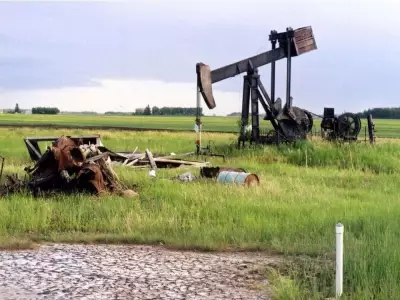
The United States is facing a growing crisis in its supply of critical minerals that threatens national security, economic stability, and technological advancement. Recent analysis reveals an alarming dependence on foreign nations for essential resources including copper, uranium, and potash—minerals crucial for everything from energy production to agriculture.
The Copper Conundrum: More Than Just Wiring
Copper, often called the metal of electrification, sits at the heart of America's green energy transition. Yet domestic production struggles to meet escalating demand. The red metal isn't just for electrical wiring anymore—it's become essential for electric vehicles, renewable energy infrastructure, and advanced telecommunications systems.
Industry experts warn that without secure copper supplies, the ambitious goals for electric vehicle adoption and grid modernization could face significant delays. The situation has prompted renewed interest in developing domestic copper mining operations, though environmental concerns and permitting challenges continue to create obstacles.
Uranium's Unsettling Supply Chain
America's nuclear energy sector, which provides approximately 20% of the nation's electricity, faces its own supply chain vulnerabilities. Despite being home to substantial uranium reserves, the U.S. imports the majority of its nuclear fuel from foreign sources.
This dependency creates strategic risks for the nation's baseload power generation. The situation has sparked calls for revitalizing domestic uranium mining and processing capabilities to ensure energy security and support the growing recognition of nuclear power's role in achieving carbon reduction targets.
Potash: The Overlooked Agricultural Essential
While energy minerals capture headlines, the shortage of domestically produced potash presents a different kind of threat to national security. As a key component of agricultural fertilizers, potash availability directly impacts food production and pricing.
The United States currently relies heavily on imports for this vital agricultural input, creating potential vulnerabilities in the nation's food supply chain. With global population growth and climate change putting pressure on agricultural systems, securing reliable potash supplies has taken on new urgency.
Strategic Responses and Future Outlook
Government and industry leaders are implementing multiple strategies to address these critical mineral shortages:
- Accelerated domestic exploration and development of new mining projects
- Streamlined regulatory processes for critical mineral production
- Strategic partnerships with allied nations to diversify supply sources
- Increased investment in recycling and recovery technologies
- Research initiatives focused on finding alternative materials
The challenge lies in balancing environmental considerations with the urgent need for mineral security. As one industry analyst noted, "We're not just talking about commodities—we're talking about the fundamental building blocks of modern society and national security."
With global competition for resources intensifying and the clean energy transition accelerating, how America addresses its critical minerals challenge will have profound implications for decades to come. The race to secure these essential resources represents one of the most significant—and underappreciated—economic and security issues of our time.





